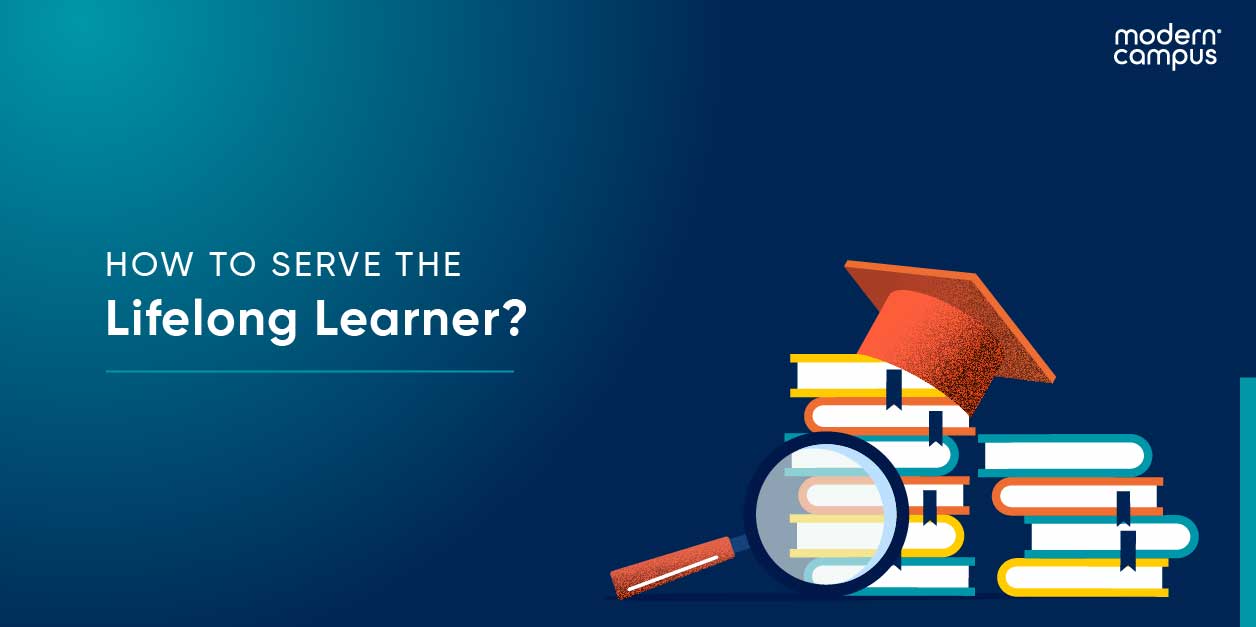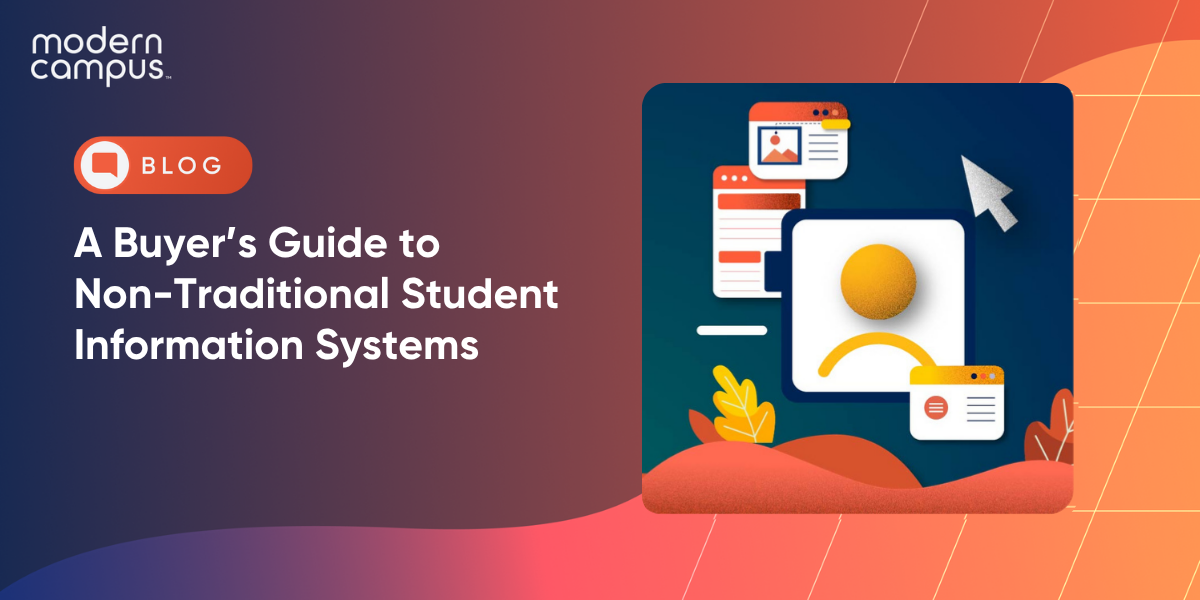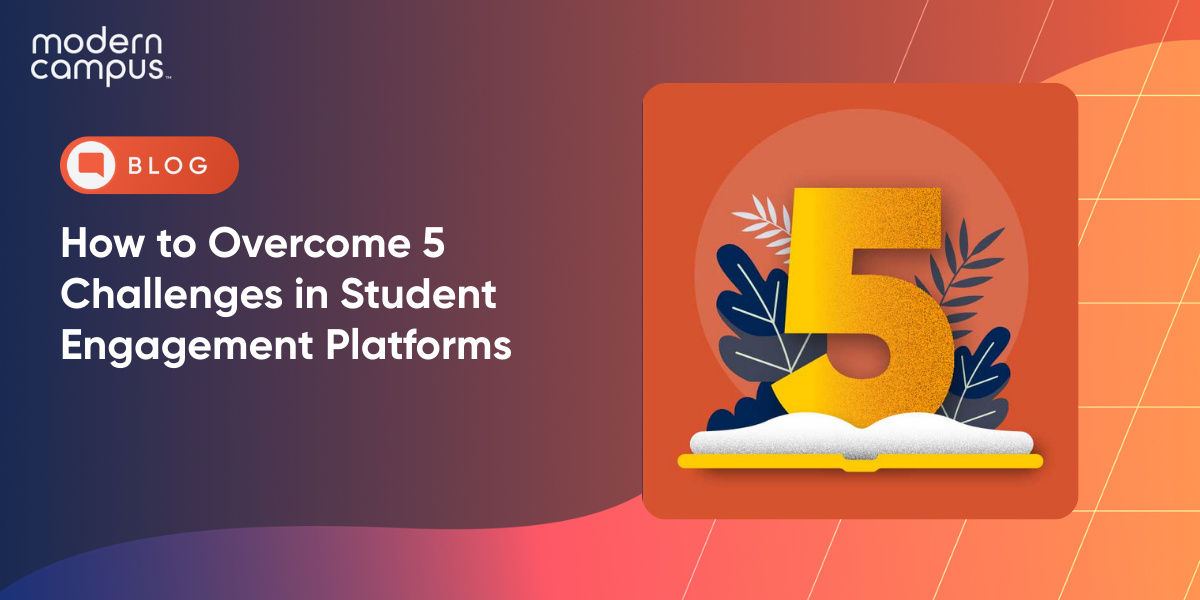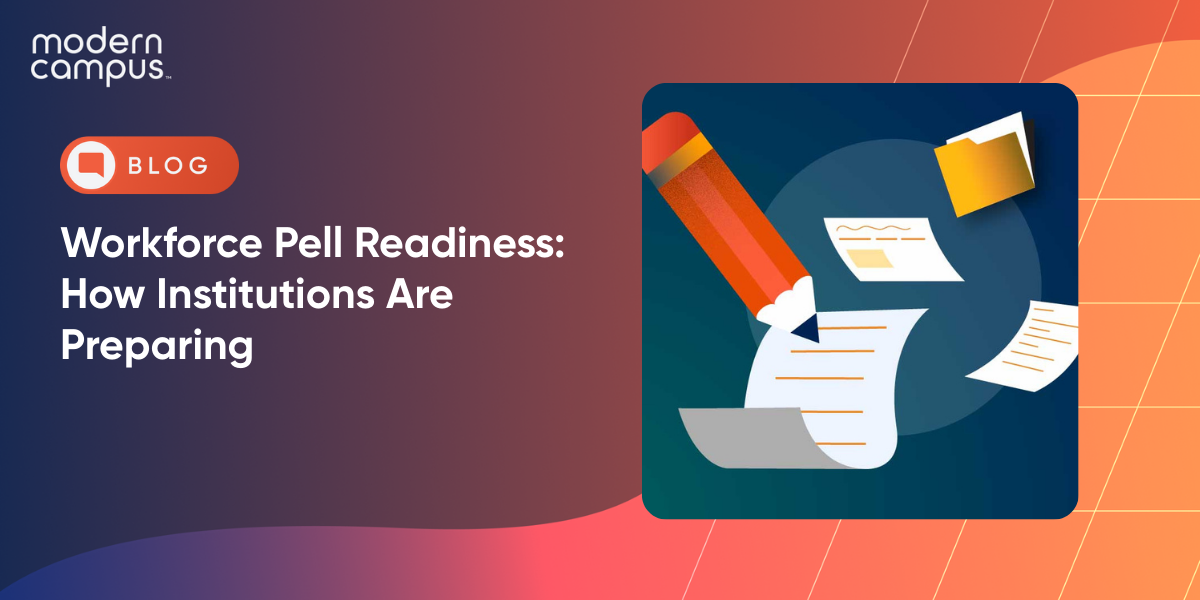How Can Small Colleges Survive and Thrive by Serving the Lifelong Learner?
As the non-traditional population continues to grow, it’s critical for institutions to be there for learners across all stages of their lives. This premise of lifelong learning requires a fundamental shift in the way higher education is designed.
First, let’s understand who is the lifelong learner.
The characteristics of a lifelong learner don’t match your traditional-aged 18 to 22-year-old. Instead, they’re adult students looking to upskill, reskill or switch careers.
Why Serve the Lifelong Learner?
It’s time for small and specialized colleges—colleges that offer niche programming focused on the liberal arts, alternative medicine, and technology—to reconsider their business and education models. These postsecondary institutions are characterized by their commitment to a particular niche, smaller cohort sizes, and faculties devoted to teaching.
Given their focus, small and specialized colleges were once considered to be an attractive option and a core part of the higher education system. It’s time to embrace a culture of lifelong learning.
What are the Challenges of Lifelong Learning?
However, today these institutions run the risk of being reduced to the system’s fringes… and even falling off the edge. Clayton Christensen’s famous prediction that half of colleges and universities would close, merge or go bankrupt by 2030 was mostly based on the observation that the business model of smaller, traditional institutions is unsustainable.
And the closure rate is accelerating. From 2004-2014, there were approximately 5 closures of four-year public and private non-profit institutions per year. Between 2016-2019, 86 colleges and universities across the United States closed, merged, or stopped admitting new students with the expectation of closing.
The reasons for these challenges are clear.
Enrollments are falling. The population of traditional college-aged students is declining and set to fall off a cliff. Competition for enrollment has intensified. There is no dearth of education providers—there are MOOCs, boot camps, and online programs that learners can choose from. Students have deprioritized brand value. Instead, they consider education providers who can accommodate their busy schedules and provide them with learning to achieve measurable outcomes.
Specialized colleges rely on tuition and are already operating on razor-thin margins. They are extremely vulnerable to downturns. As mentioned previously, many colleges are closing down or getting merged with their larger counterparts, some are even considering shedding their specialized programs and faculty.
These are testing times! Small and specialized colleges need to ask themselves if they are doing enough to reach out to their communities and the different kinds of learners who need education but don't necessarily fit the traditional 18-year-old student demographic.
Small colleges must consider shifting their focus away from serving a shrinking minority of the learner population to the growing non-traditional one, which comprises adult and lifelong students in education.
Benefits to Lifelong Learning in Higher Education
Despite the current situation that most small and specialized colleges find themselves in, all isn’t lost. These institutions can still thrive if they are nimble. All that it takes to succeed is maintaining a strong focus on a particular niche, remaining connected to the communities and serving local stakeholders, and providing lifelong learners with options to meet their lifelong learning needs.
According to Richard Holmgren, Vice President for Information Services and Planning at Alleghany College, smaller institutions can succeed in the commoditized higher education marketplace by maintaining their focus on meeting local needs.
“We have to recognize that we need to figure out a way to create differentiation in an environment where, from the market’s perspective, not much differentiation exists,” he said in his interview with The EvoLLLution.
“Where we might differentiate ourselves at a smaller institution is that we can engage students more in the ‘practical knowledge’: How do these concepts apply to the world around us? How do they apply to my life? How do they apply when I’m out in the community trying to help a local organization?”
Professional development is another route available to small and specialized colleges to overcome dwindling enrollments.
By supporting learners as they progress through their professional careers and by adding high-demand programs, small and specialized colleges stand to create a pool of lifelong students—who will keep coming back to the institution for more.
Strategies for Promoting Lifelong Learning
Modern learners carry certain expectations. Their learning needs and experiences are shaped by what is happening in the world around them. Technology has shaken up many industries and transformed customer experiences, and modern learners expect that their learning and improving process prepares them to take up new world challenges.
Serving modern lifelong learners will require a strong customer-service-oriented mindset and institutional commitment. Here are some tactics that you can consider to serve and encourage lifelong learning and your community.
1. Provide Access to Relevant Information
Information has become ubiquitous, whether it’s about career choices or even programming options. And modern learners expect your college provides access to such information in a few clicks without any hassle.
As a specialized educational institution, you need to be equipped to make this information available to your learners—both present and prospective. Your college website should be simple and easy to navigate, with all relevant and up-to-date information on offerings and their availability.
You need to make your learners feel empowered so that they can make the right program choices. If you don’t make it easy for your learners to access such useful information, they will disengage… maybe even not return back.
2. Prioritize the Learner Experience
Learner demographics have changed. There are an increasing number of adult learners who are returning to education.
The younger generation of learners is digitally savvy. Today, learners have become accustomed to the customer experience provided by the likes of leading online retailers like Amazon. They expect to be self-sufficient and possess the capability to resolve most of their administrative problems themselves. They’re unlikely to call in to request the necessary paperwork they need to fill out in order to register.
As a specialized college targeting lifelong learners, you need to provide a seamless registration experience—right from discovery to payment and even beyond. Learners should find it easy to select a course, load it into their online shopping cart, securely input their payment information and get on with their education right away.
3. Use Personalized Communication
Your college communication must be focused on your students’ needs. It is essential to tailor your messages and communication around the stages of their progress and achievement. From educating students about programming options and pathways to success to the first few exploratory emails and admissions reminders, each and every student interaction must be customized to the goals students want to accomplish or the life and career challenges they want to address.
It is also important to understand where each student fits in the student lifecycle. Across the different stages in their academic career, students have contextual needs and priorities, and it’s important that you are aware of those. If you have this information, you can guide your students proactively rather than reactively and move forward in a way that best supports their continuous learning and success.
4. Leverage Data
You can’t afford to ignore the power of data. If you want to support your students through their learning journey, you need data about their needs, goals, and objectives. By collecting and analyzing this data across multiple sources, such as student information systems and learning management systems, you can not only understand but also enhance student learning.
Armed with actionable intelligence about student preferences, academic performance, and learning patterns, you can advise and guide your students regarding the programming options that are available to them through the different stages of their careers.
5. Offer Career Advising Services
If you want to support students who pursue lifelong learning, it is critical that you establish and nurture relationships with your learners. You must make an effort to understand their priorities, the outcomes they want to accomplish and then suggest programming that can help them realize their vision.
By doing this, you will make your students feel confident about their decision to continue persisting with you for their specialized education needs as they progress through the different stages in their careers.
Small and specialized colleges can get access to continuous revenue streams by serving learners for life. This is extremely helpful, given that specialized colleges are struggling to wade through current market dynamics. If ably equipped to do so, specialized institutions can even thrive on the opportunity that lifelong learning presents.
Applying Student Lifecycle Management Fundamentals to Higher Education
earn how you can apply fundamentals of student lifecycle management at your institution and support lifelong learning.
Last updated: July 10, 2023




